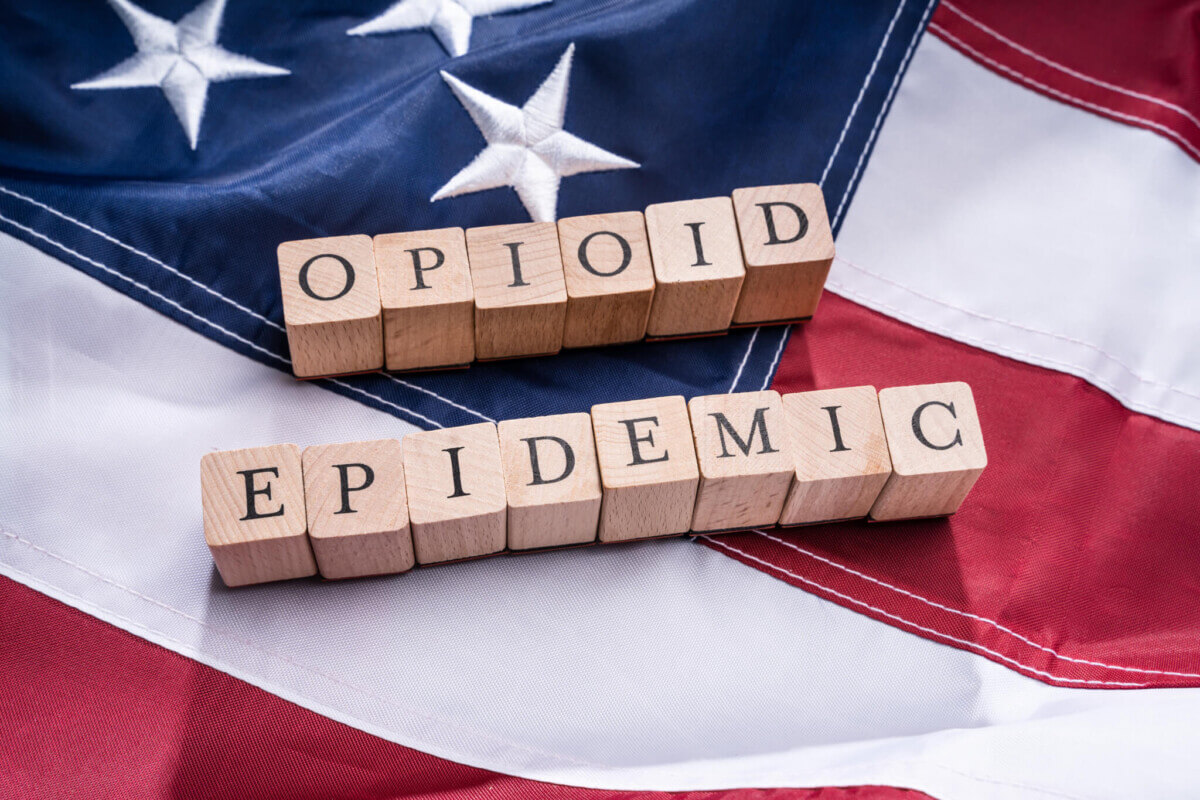
(© Andrey Popov - stock.adobe.com)
HOUSTON — Scientists may have found the answer to a public health crisis that's devastated the lives millions of American families. Researchers at the University of Houston are developing a vaccine capable of targeting the dangerous synthetic opioid fentanyl. The new vaccine actually blocks fentanyl from making its way to the brain, eliminating any potential “high.”
Study authors believe this breakthrough discovery holds major implications for America's ongoing opioid epidemic. The vaccine could serve as a relapse prevention agent for people trying to quit using fentanyl. While Opioid Use Disorder (OUD) is treatable and beatable, it's an incredibly tough battle; roughly 80 percent of those dependent on the drug suffer a relapse.
Currently, over 150 people pass away every single day due to overdoses of synthetic opioids like fentanyl. A truly nasty drug, fentanyl is 50 times stronger than heroin and 100 times stronger than morphine. Just two milligrams of fentanyl — the size of a rice grain — is enough to kill many people.
“We believe these findings could have a significant impact on a very serious problem plaguing society for years – opioid misuse. Our vaccine is able to generate anti-fentanyl antibodies that bind to the consumed fentanyl and prevent it from entering the brain, allowing it to be eliminated out of the body via the kidneys. Thus, the individual will not feel the euphoric effects and can ‘get back on the wagon’ to sobriety,” says lead study author Colin Haile, a research associate professor of psychology at UH and the Texas Institute for Measurement, Evaluation and Statistics (TIMES), and a founding member of the UH Drug Discovery Institute, in a university release.
Notably, the vaccine also provoked absolutely no adverse side effects among a group of immunized rats analyzed during a series of lab experiments. Moving forward, the research team is already planning to start manufacturing clinical-grade vaccines in the coming months. Clinical trials involving human subjects are planned as well.
Fentanyl vaccine a potential ‘game-changer'
Fentanyl has emerged in recent years as an especially awful aspect of the opioid epidemic due to how often street dealers will add it to other drugs like cocaine, methamphetamine, other opioids (oxycodone and hydrocodone/acetaminophen) and even counterfeit benzodiazepines like Xanax. When people who don't use opioids unknowingly consume fentanyl, the risk of fatal overdose is very high.
“The anti-fentanyl antibodies were specific to fentanyl and a fentanyl derivative and did not cross-react with other opioids, such as morphine. That means a vaccinated person would still be able to be treated for pain relief with other opioids,” Prof. Haile adds.
The new vaccine contains an adjuvant derived from E. coli called dmLT. Adjuvant molecules boost the immune system's response to vaccines, which is an essential aspect when it comes to building the effectiveness of anti-addiction vaccines. This adjuvant specifically was created by collaborators at the Tulane University School of Medicine, and Baylor College of Medicine, and has already proven invaluable to the success and efficacy of this vaccine project.
Right now, the most common offered treatments for opioid use disorder are methadone, buprenorphine and naltrexone, but the effectiveness of these approaches depend on a number of factors; formulation, compliance, access to medications, and the specific misused opioid.
Senior study author Therese Kosten, professor of psychology and director of the Developmental, Cognitive & Behavioral Neuroscience program at UH, calls the new vaccine a potential “game changer.”
“Fentanyl use and overdose is a particular treatment challenge that is not adequately addressed with current medications because of its pharmacodynamics and managing acute overdose with the short-acting naloxone is not appropriately effective as multiple doses of naloxone are often needed to reverse fentanyl’s fatal effects,” she concludes.
The study is published in Pharmaceutics.











What would be great is a vaccine that blocks urges. I'm a recovering addict and the hardest part, besides withdrawals, was the urge to use. If somehow that could get blocked maybe people could move on faster and have less of a chance of relapsing.